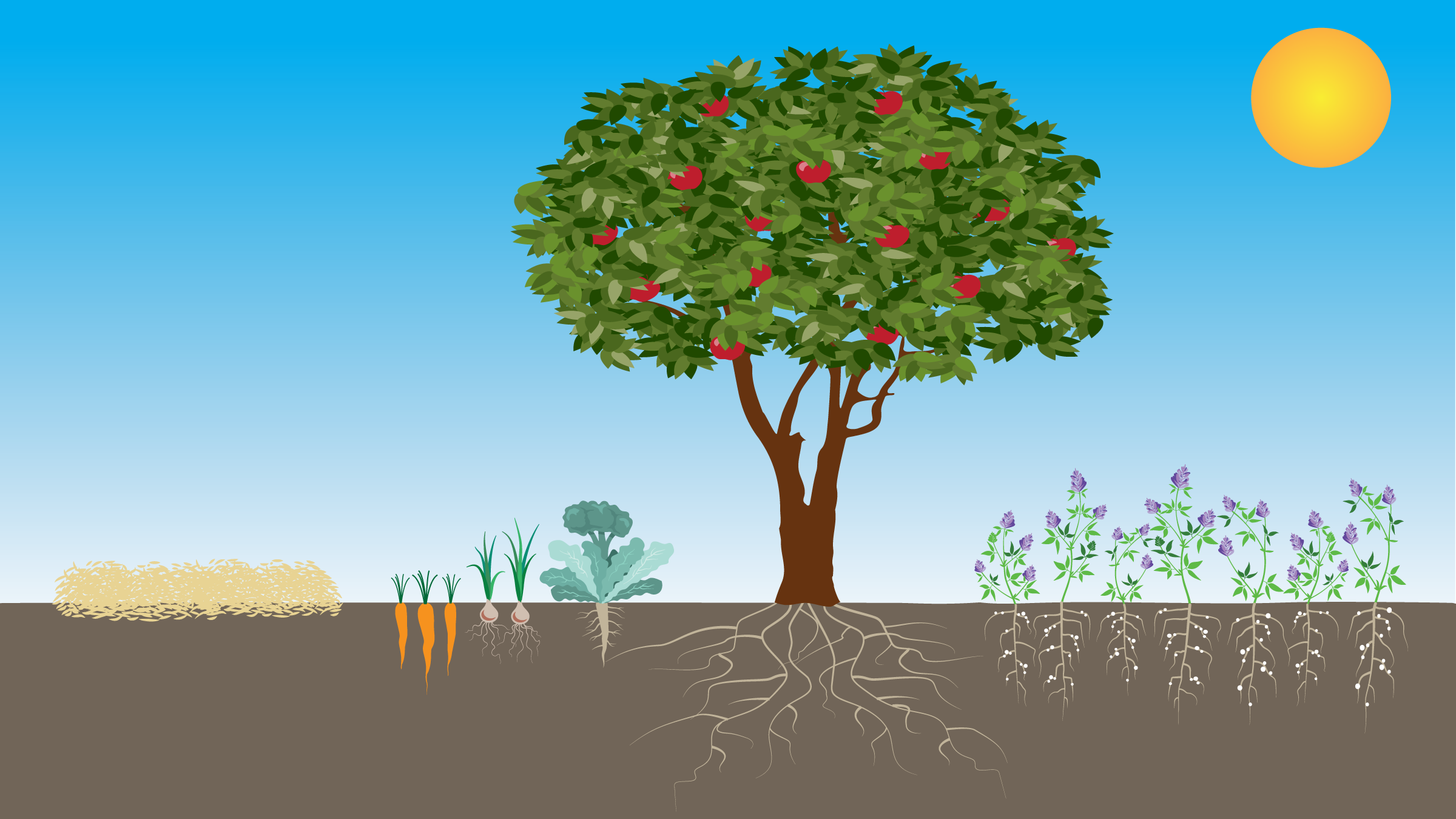Healthy Soils Increase Resilience
Healthy soils form the foundation of organic production. Healthy soils have good structure (tilth), which allows them to absorb and hold moisture, drain well, maintain adequate aeration, and foster deep, healthy crop root systems. Such soils sustain crops through dry spells, require less irrigation water, and undergo less ponding, runoff, and erosion during heavy rains.
The Natural Resources Conservation Service (NRCS) has identified four guiding principles that support healthy soils: 1) minimize disturbance, 2) maximize biodiversity, 3) keep soil covered, and 4) maintain living roots. These principles provide the foundation for a resilient farm system and are explained in more detail in the infographic above.
The USDA National Organic Standards require certified producers to implement crop rotation, cover cropping, tillage, nutrient management, and other practices that improve and maintain the physical, chemical, and biological condition of the soil.
In this short demonstration video, organic farmer Scott Park of Park Farm Organics in Meridian, CA explains the relationship between water management and soil health and the overall productivity of the farm. Scott explains the importance of preventive practices in organic systems—because organic farmers cannot rely on synthetic chemical inputs, they need to take care of the soil over time and solve production problems before they happen. Farmers do this by implementing soil health building practices because healthy soils are the foundation of a healthy farm.







